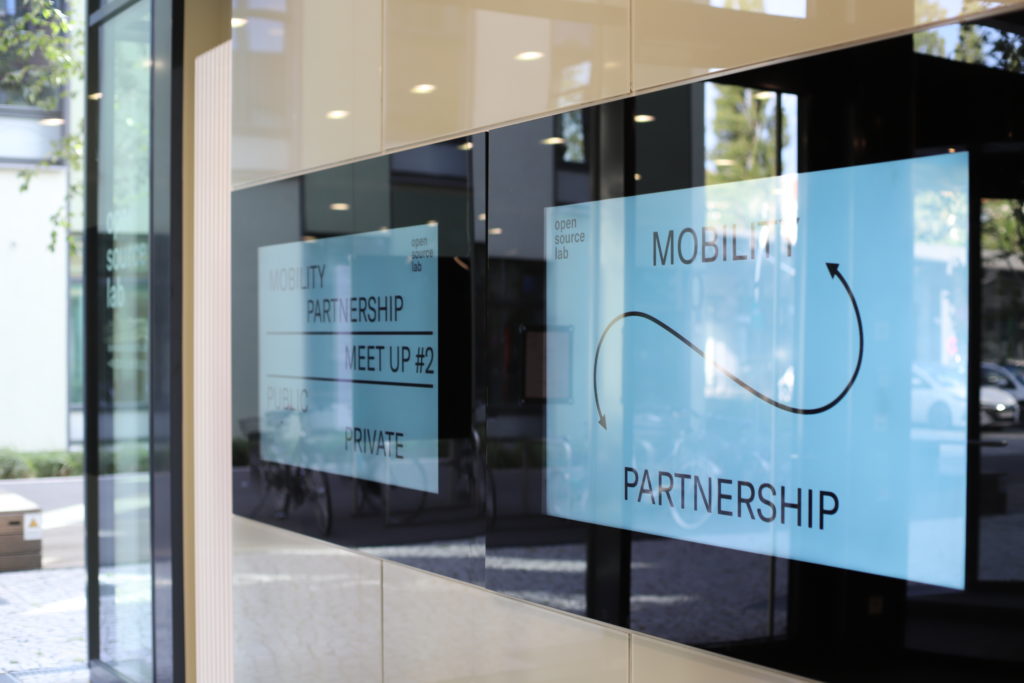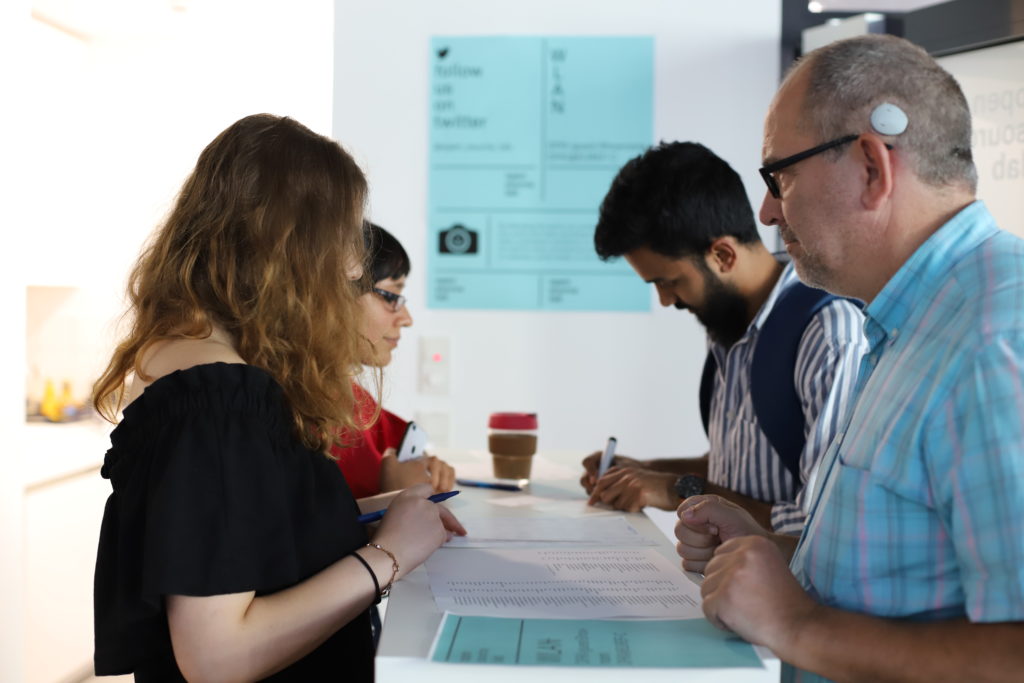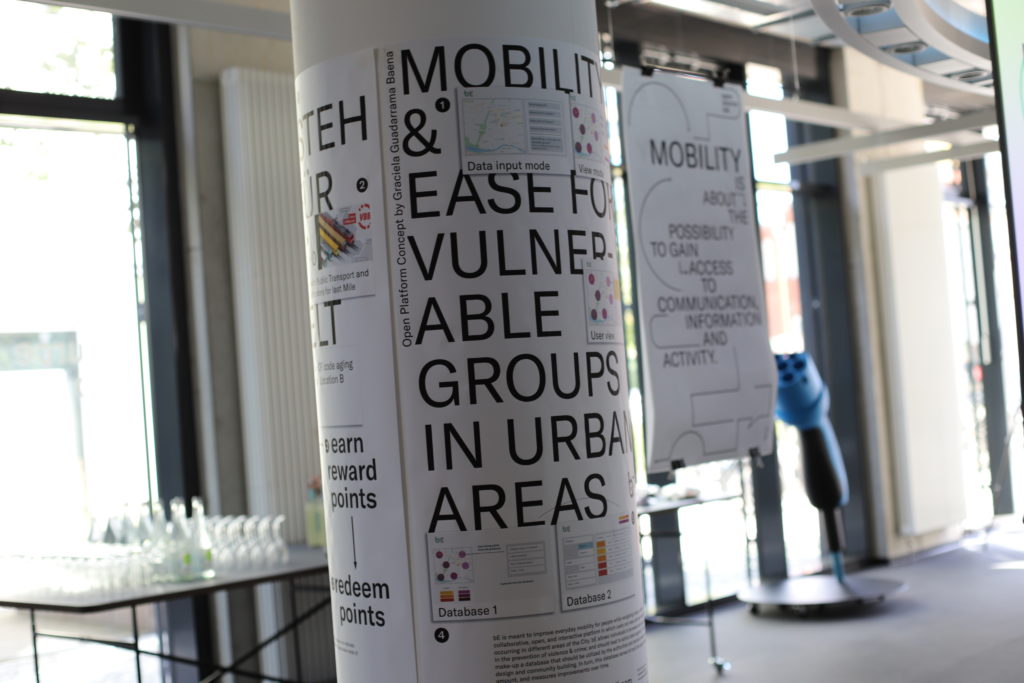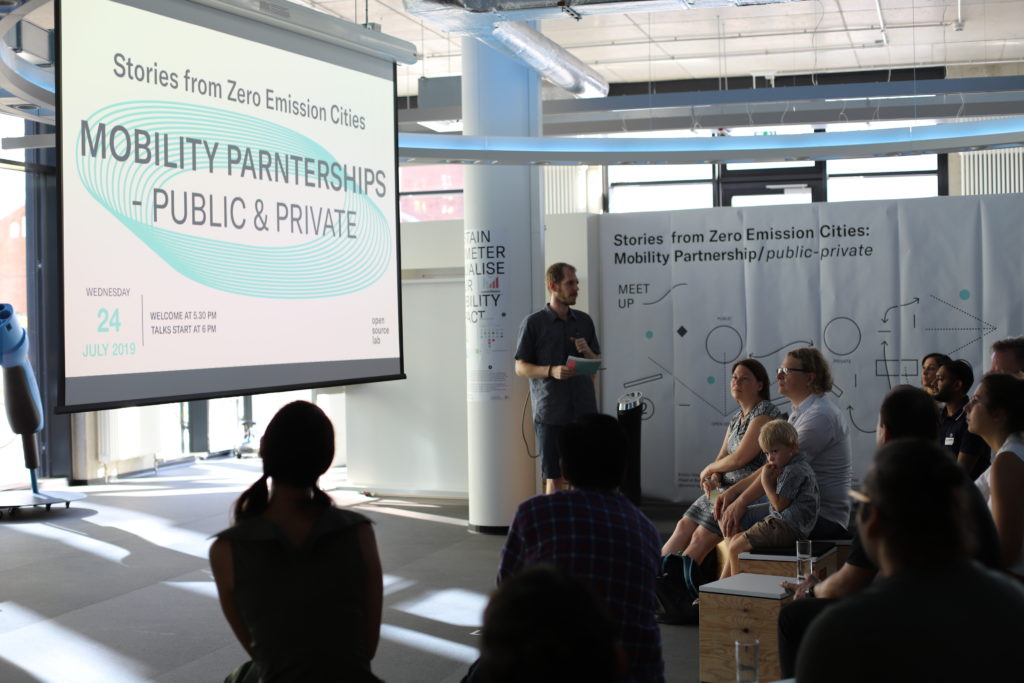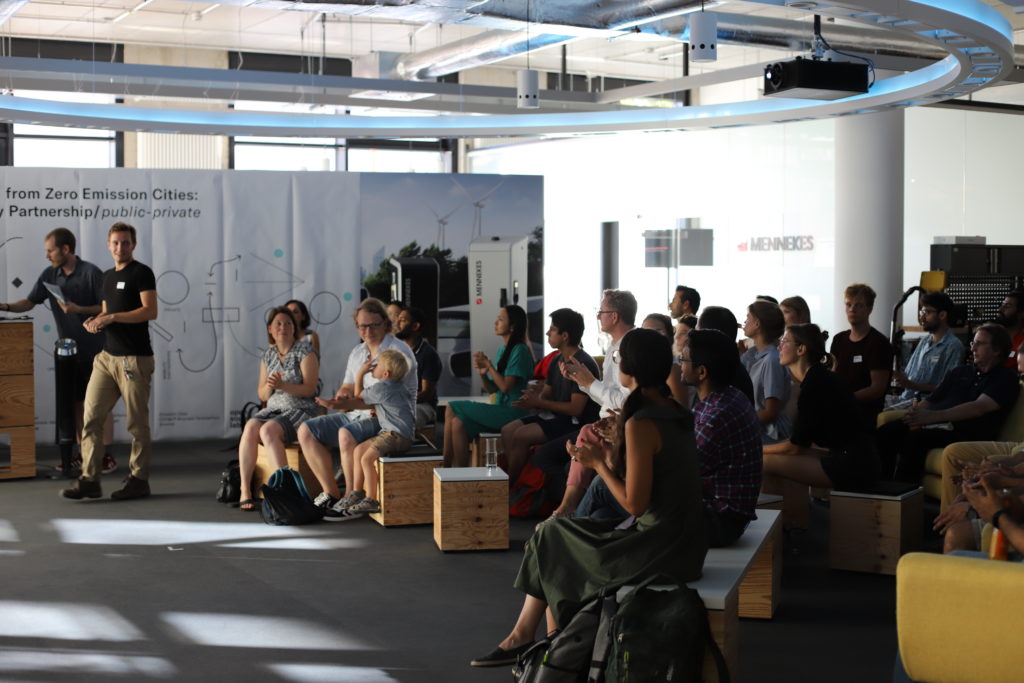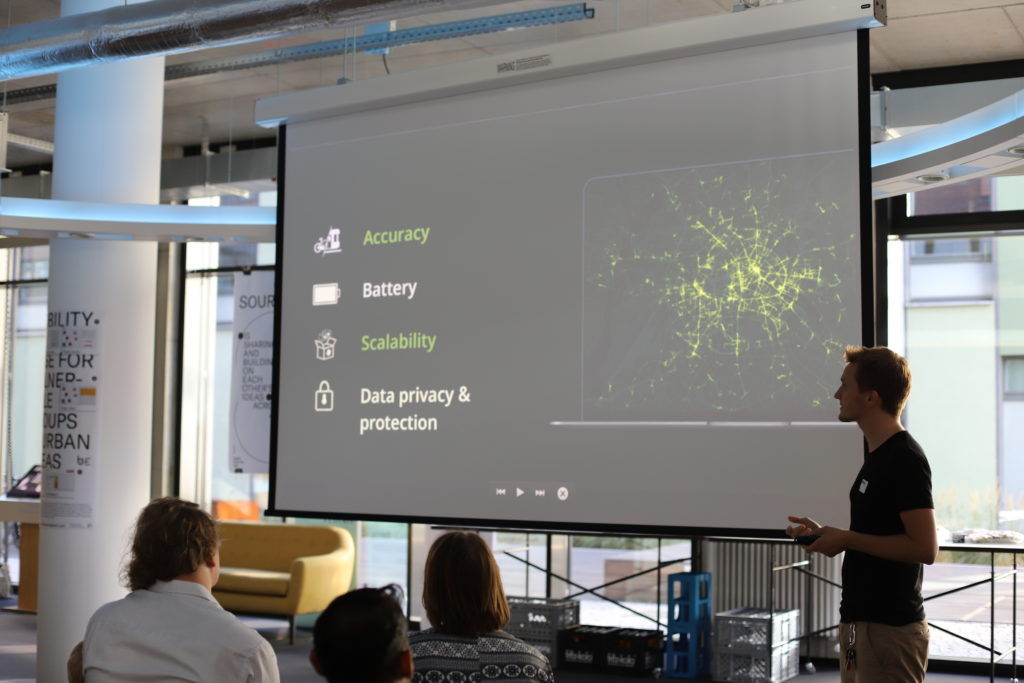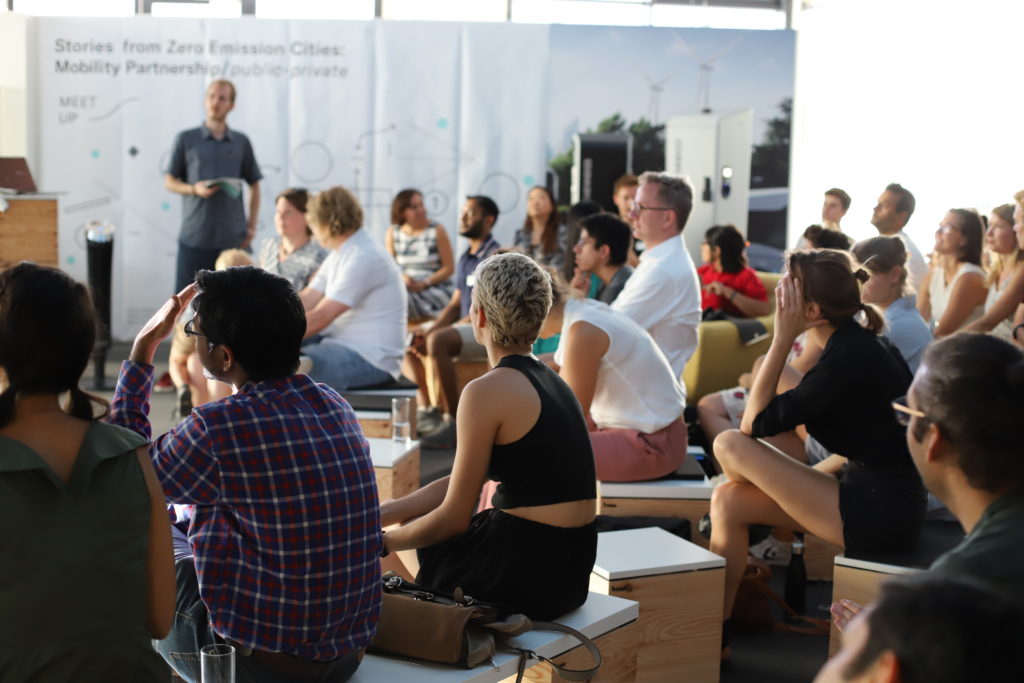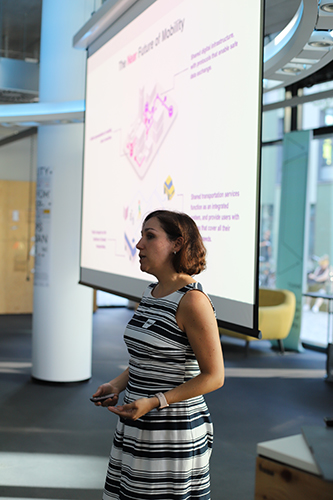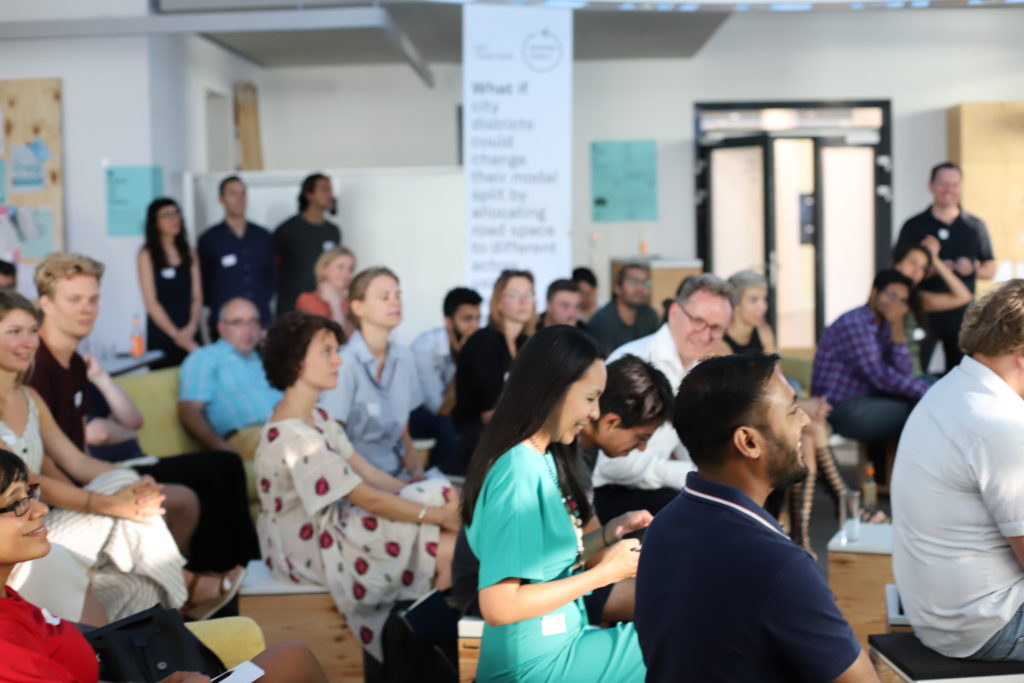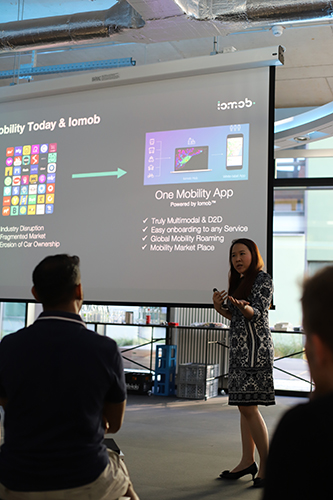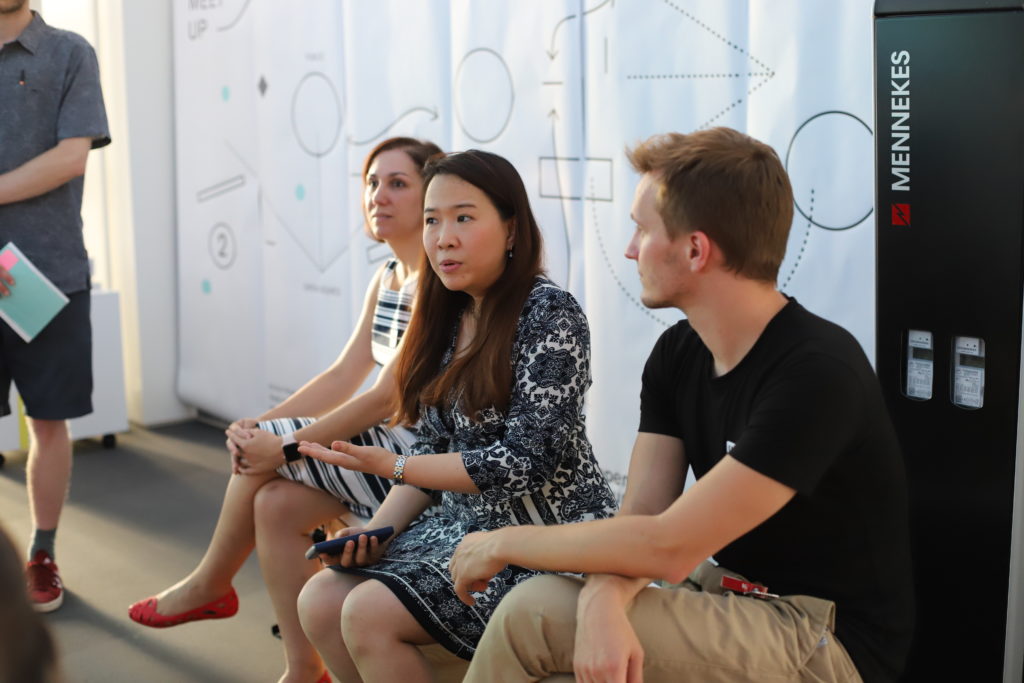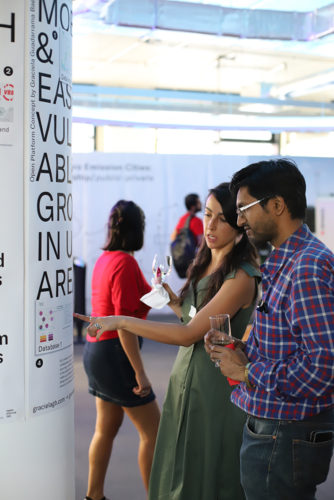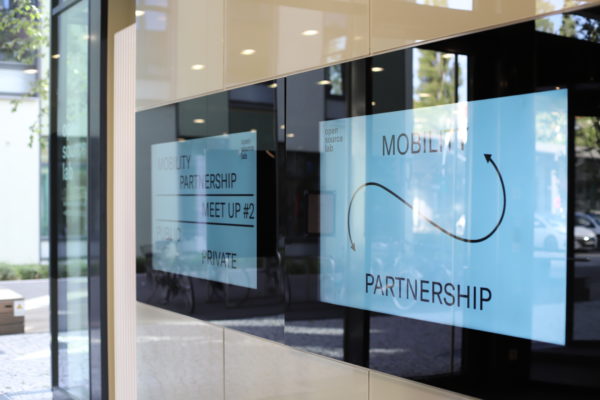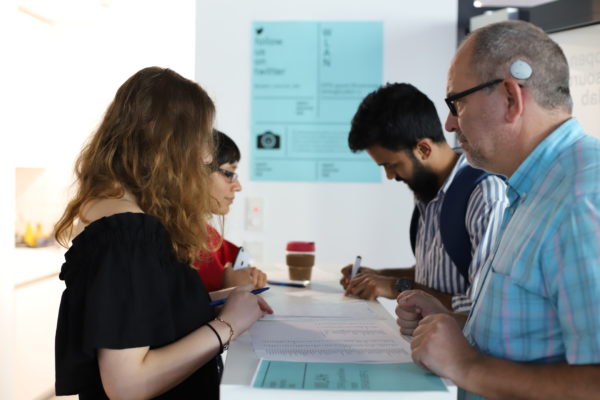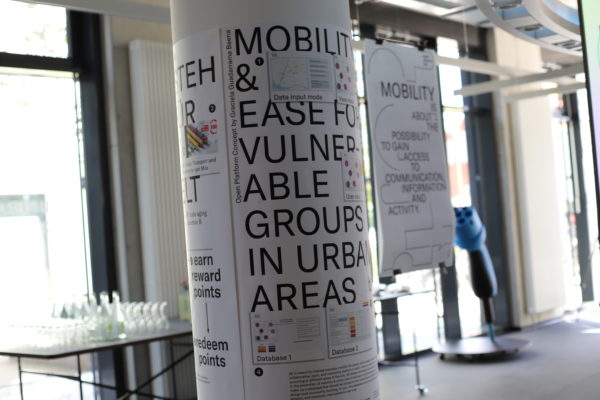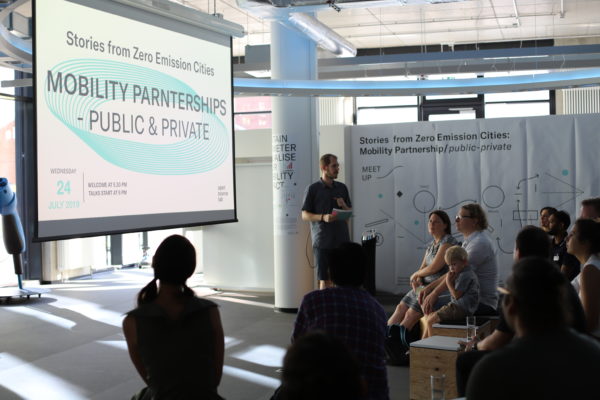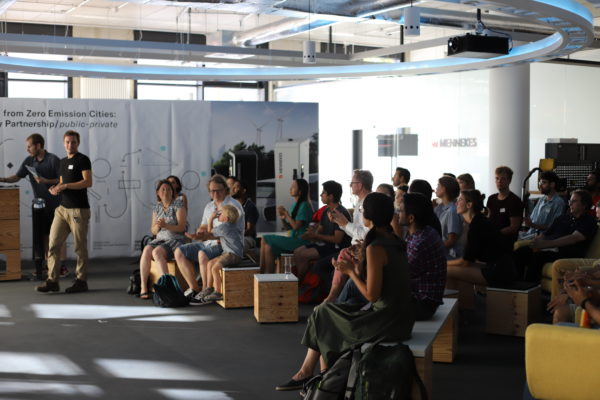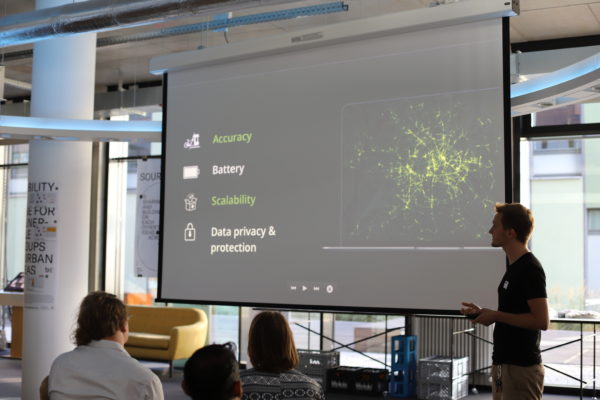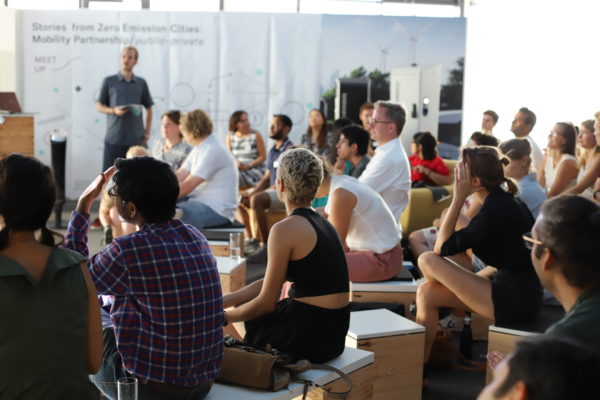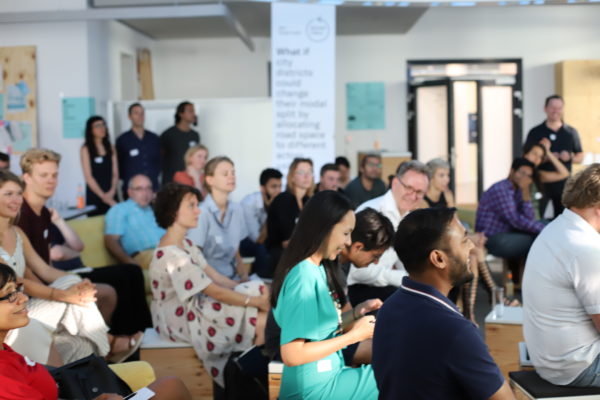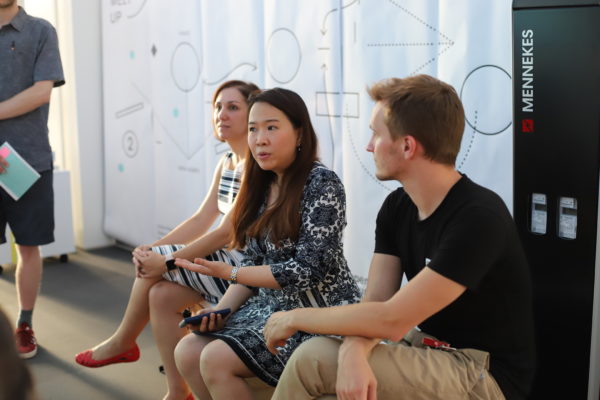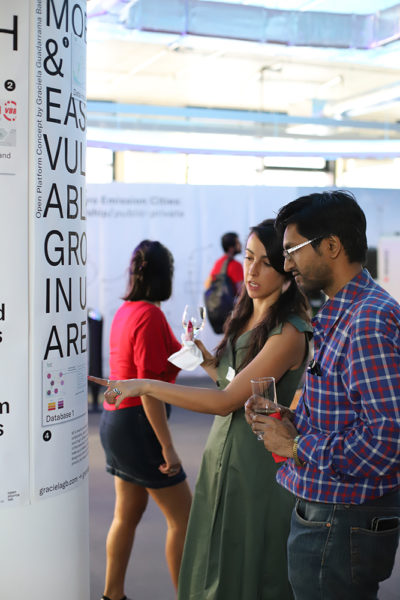In the context of new mobility solutions appearing everywhere around the globe, city authorities are faced with the increased difficulty of managing the mobility situation. One which can rarely be tackled by public transport departments alone and therefore making them reliant on the expertise of e.g. IT businesses. That is why partnerships between cities and private business are of major importance when more sustainable and inclusive mobility is the goal. How those partnerships are formed, which conditions make them work and under which challenges they are established were the main questions of the MeetUp event.
For a little bit more context about the speakers, lets start with an introduction of their respective companies. Then we will dive into Open Source aspects followed by a best practice example and some challenges on working with cities.
Motiontag
Represented by the Head of Business Development, Enrico Howe, Motiontag is a start-up founded 2015 in Berlin that offers mobility service providers the means to gather, analyze and aggregate large quantities of travel data from their customers. They use a single data source for all modes of transport done either by a Whitelabel app or by a SDK (Software Development Kit) that can be easily integrated into existing mobility applications. Additionally, they offer a software solution for mobile ticketing systems that can also be integrated into existing apps and allows for mutliple stakeholders to participate. Being a start-up, Motiontag has worked with big and small public transport authorities in cities like Vinnytsia, Ukraine or Lisbon, Portugal already.
Trafi
“Cities will lead the digital mobility revolution”, states Carolina Castanheira, product manager at Trafi. Having developed and applied their mobility services over eleven years, Trafi now provides MaaS solutions to transport authorities enabling them to handle the demand and supply of their customers. Their software can be used to operate multiple services from several stakeholders in a single Application while handling the trip planning as well as the ticketing. In the near future, Trafi will also work on mobility analytics and mobility regulations supporting city goals by incentivising behavior towards a multi-modal mobility.
Iomob
The internet of mobility, or I-o-mob, describes the start-up’s idea of an open and decentralized mobility marketplace, says Elizabeth Chee COO and VP of Business Development at Iomob. Being able to offer the entire spectrum of vertical services – multimodal routing, booking/unlocking, payment, whitelabel app, easy integration of new services, decentralized data privacy/security and an open marketplace – Iomob has won multiple tenders across the world and will launch its first services this year in Sweden, Spain and the US. The software solution by Iomob allows any mobility service provider, public or private, to be easily integrated into the local mobility hub. For travelers it is possible to connect to any hub globally using only one Application, thus creating connected multimodal mobility worldwide.
What relevance does Open Source Technology play?
Motiontag and Trafi uses several open data standards (e.g. GTFS, GBFS, MDS, SharedStreets, Uber H3) as well as open software (e.g. OSM, Kafka, Postgres DB, Redis, NET Core, JVM, Kepler) while Trafi has also shared several codes publically on github. Future incentives for contributing to open source software are being considered within Trafi as well.
Iomob also uses open source software, standards, data, specifications and open APIs to develop their product. Though having parts of their code closed at the moment Iomob aims to openly publish their entire software in the future. Their revenue model will then shift towards earning from single transactions rather than from selling a MaaS product.
City Partnership Best Practice
Jelbi/BVG (Berlin Transport Agency): Jelbi is marketed as the worlds largest mobility service deployment and was launched in June 2019 in Berlin. The app combines ticketing, transit information, ride hailing, multimodal routing, car sharing, kick-scooter sharing, bike sharing and shuttle services. Carolina (Trafi) describes the partnership with the client BVG as very positive due to these reasons:
– designated teams in both organizations
– project manager with an agile mindset (BVG)
– BVG owning the product
– BVG managing the legal framing supporting the integration
– BVG trusting Trafi with user experience and technology integration
As the winner of the “Sustainable Mobility Challenge” in Sweden Elizabeth (Iomob) mentioned the extremly well planned process handled by the network behind the call. All legal frameworks and local partnerships were arranged alongside the challenge accelerating the market introduction of Iomobs software. Sweden’s efforts are guided by their National Digital Agenda.
Challenges on working with Cities
Though the three speakers shared different stories in terms of scale or region they were naming similiar challenges they experienced while partnering with cities worldwide to deliver their respective solutions:
– complexity of demand definition in mobility ecosystem
(e.g. data sharing between public/private -> hindering assesment)
– limited tools and expertise in public authorities
– available budget from cities (resources allocated for developing MaaS)
– representativity
(analyzed mobility situations lack critical mass of users)
– time to market (from tender to product launch -> increased costs)
– lack of long-term strategy (no National Digital Strategy )
– contractual and technical details (complexity of stakeholders)
– speed of development limited by agreements and integrations
– attitude towards embracing innovation
(culture change in public institutions)
– open data vs. privacy (campaigning for sharing of aggregated data)
For those of you who made to the end of this rather elaborate summary of the event, stay tuned for a short video interview with Elizabeth Chee from Iomob.
